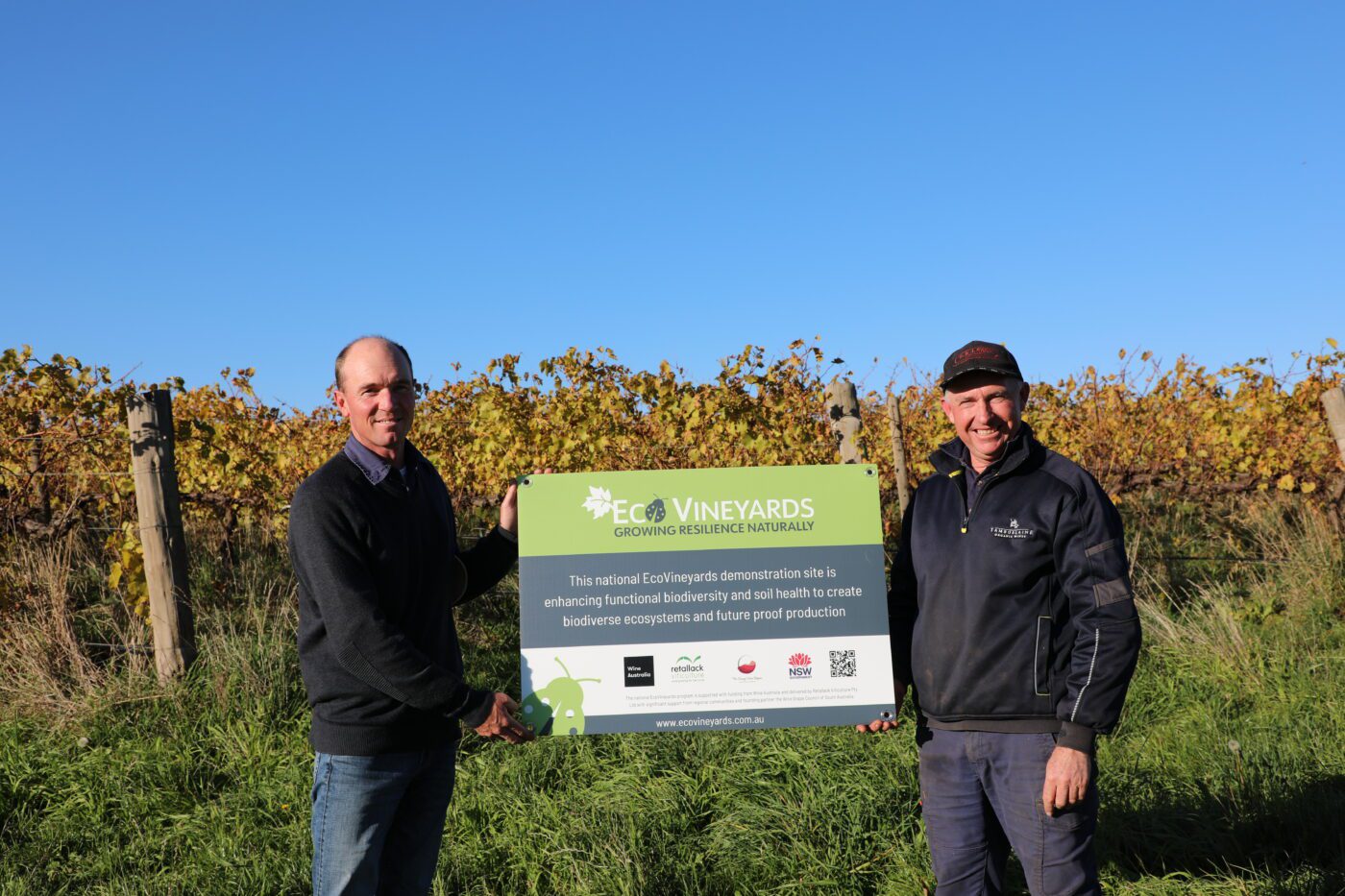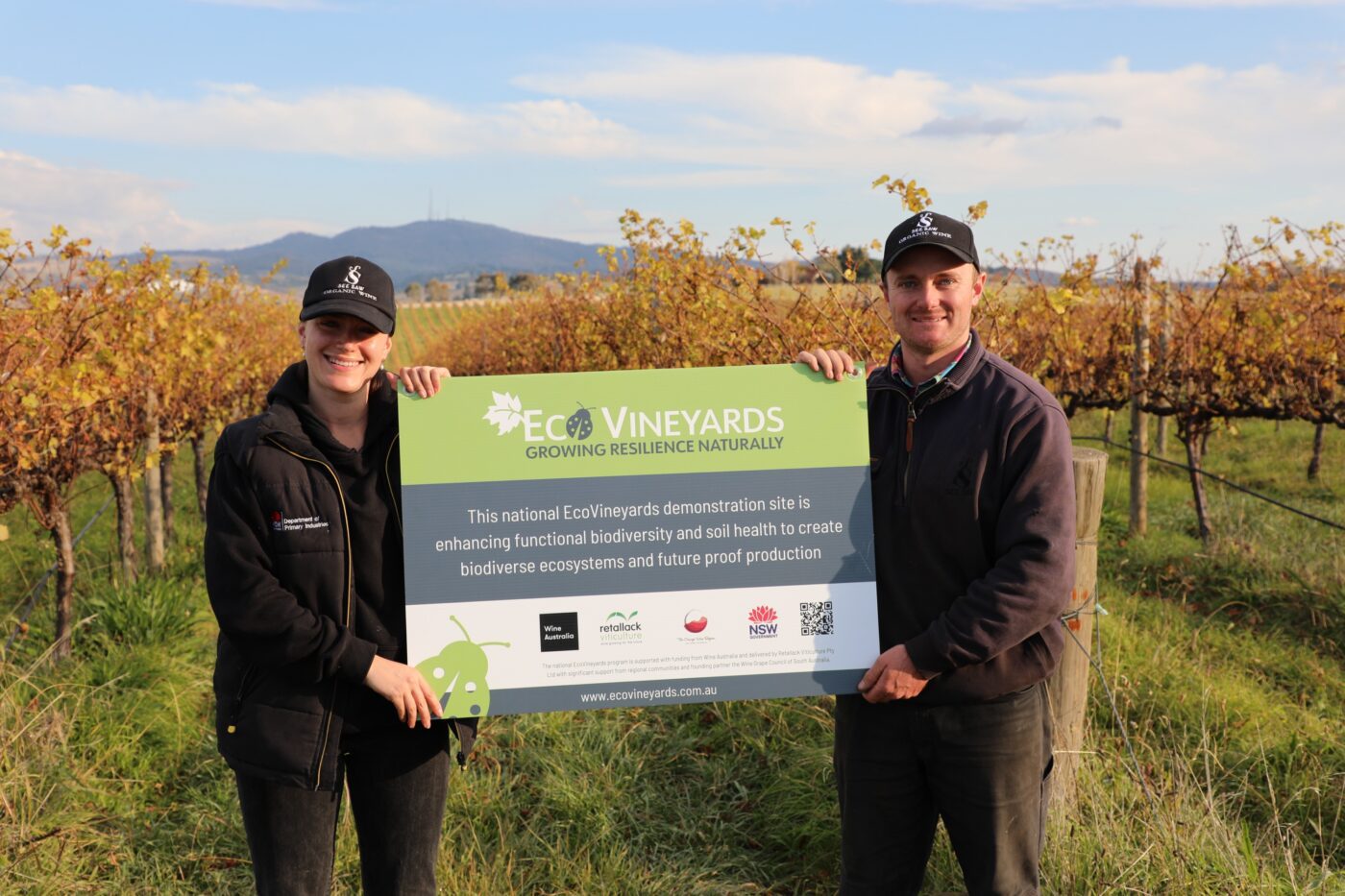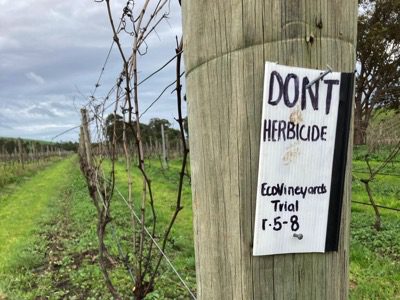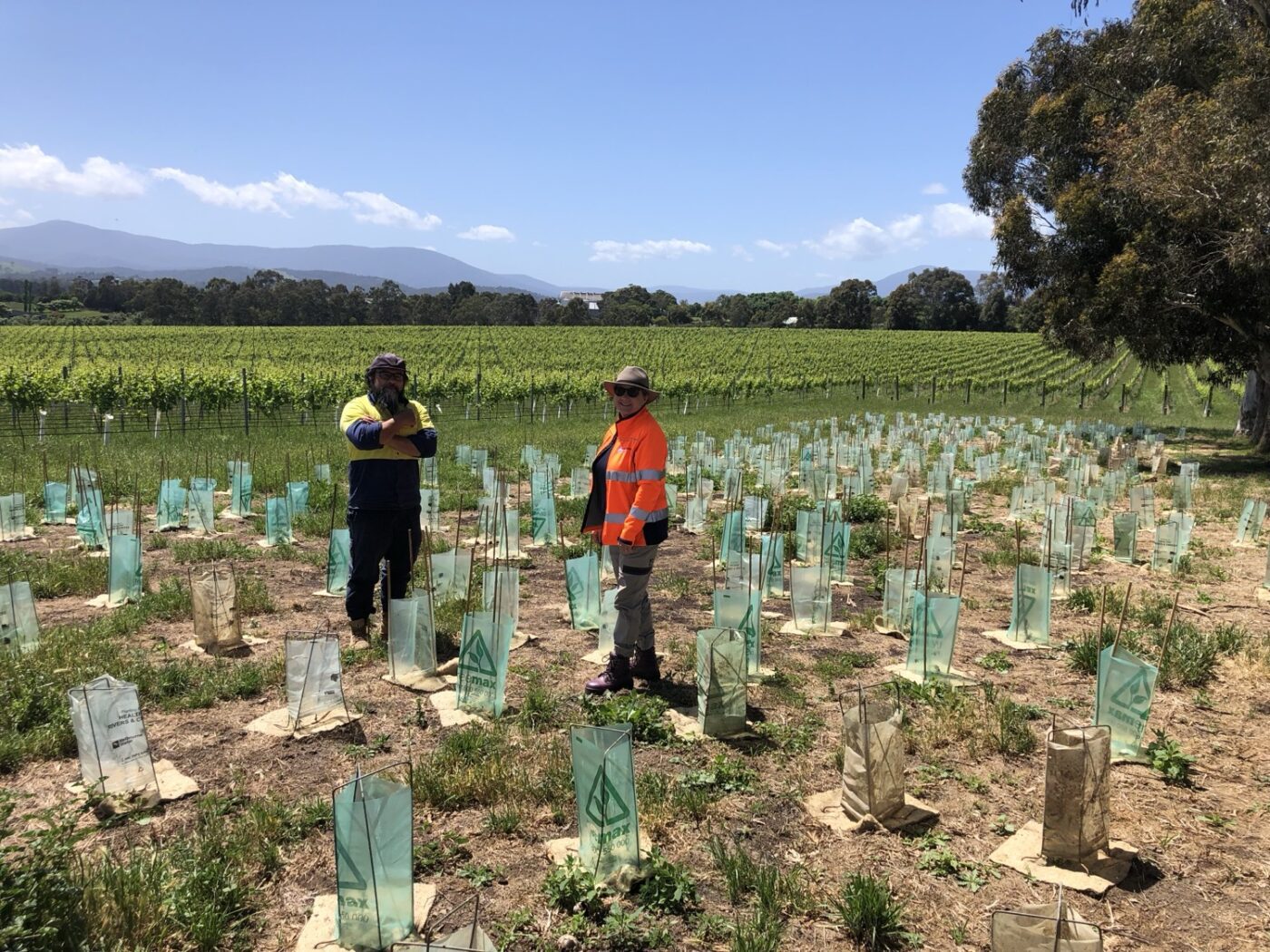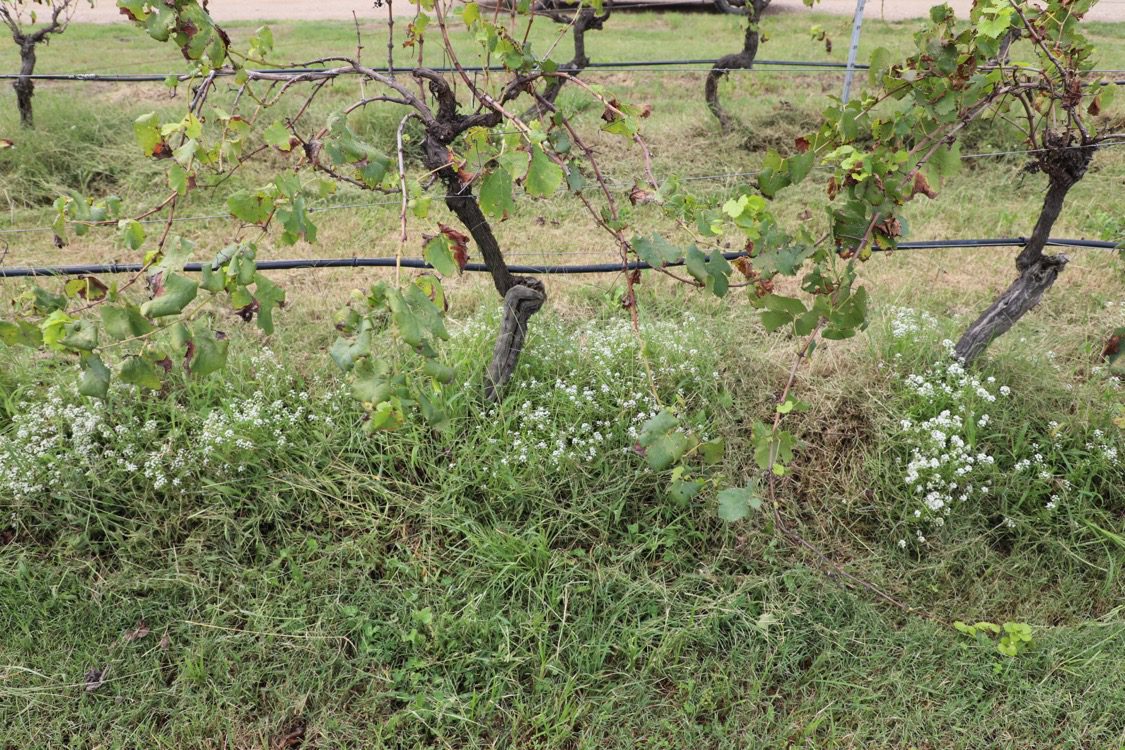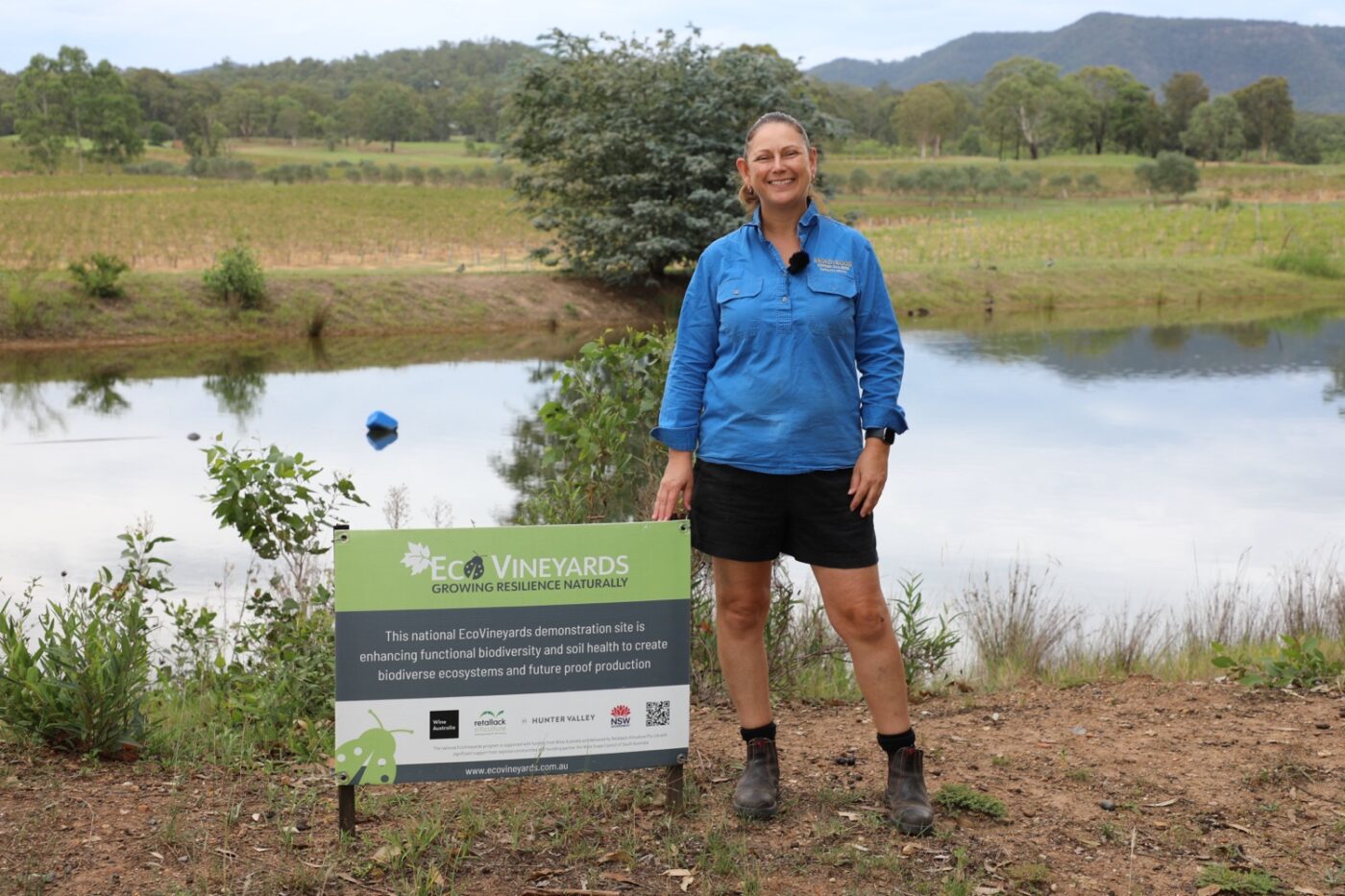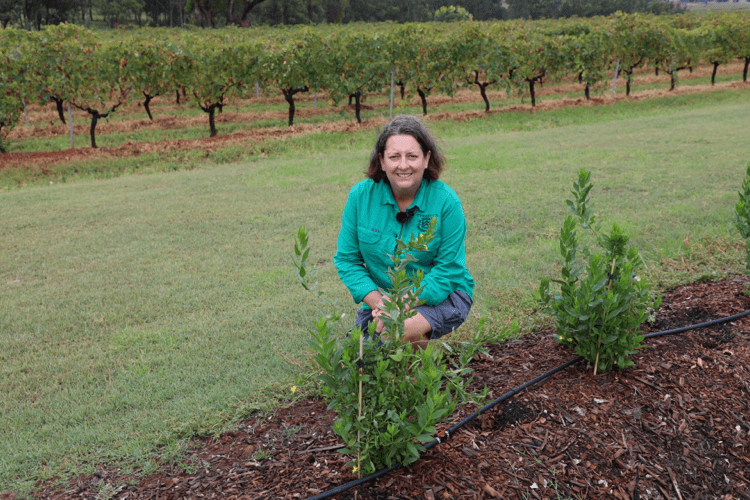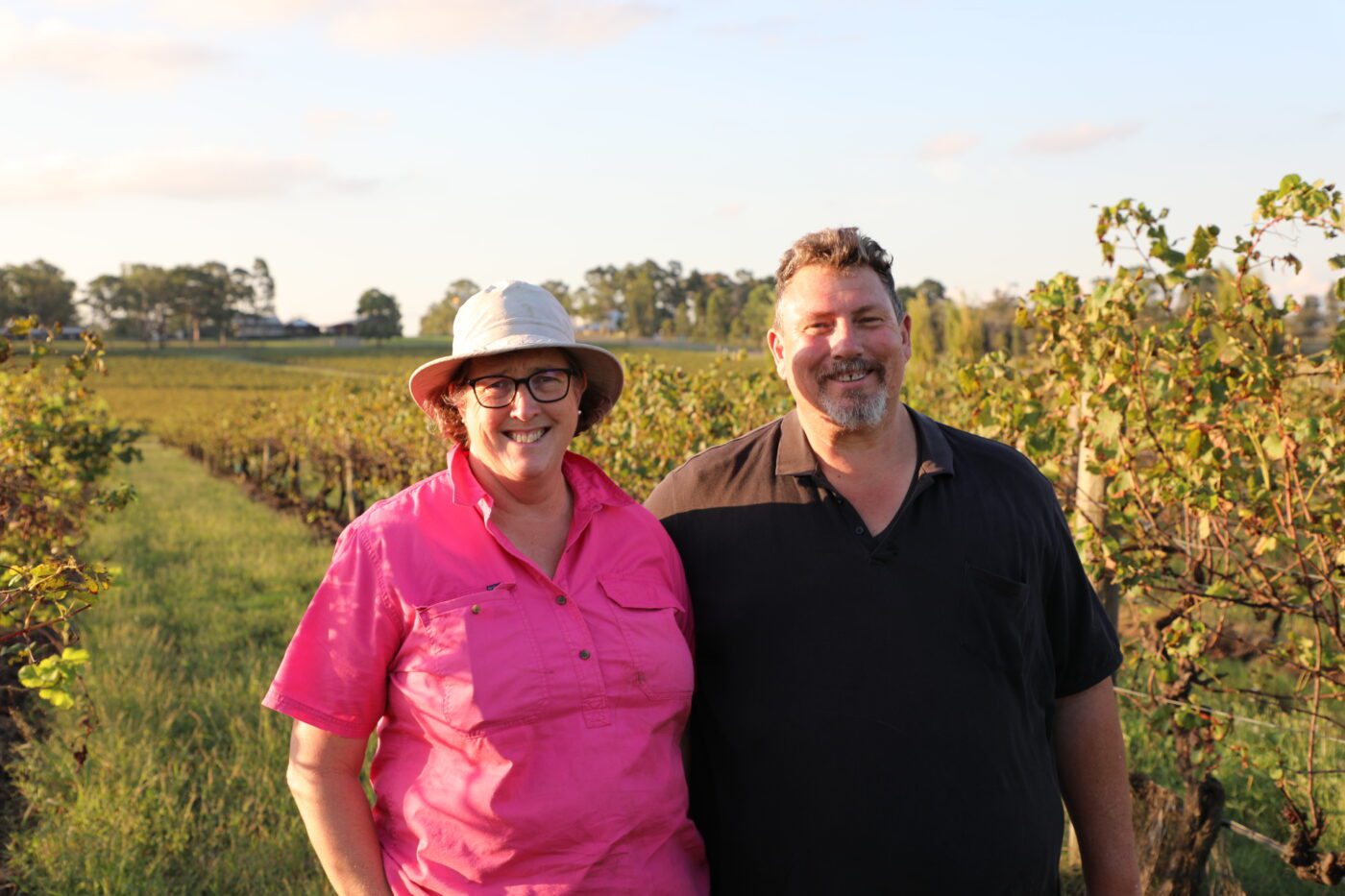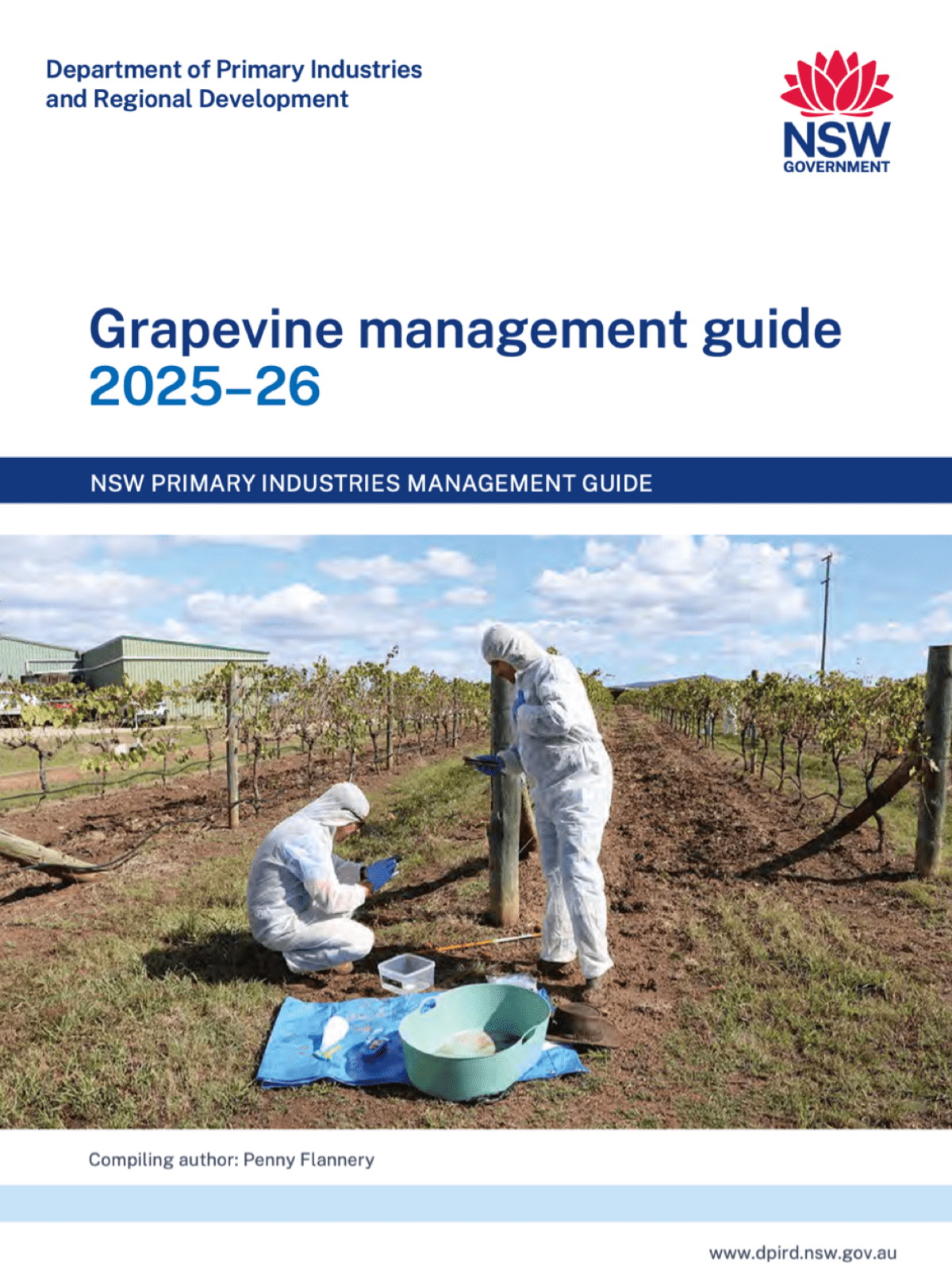Date: October 2025 EcoGrowers: Marty Gransden Region: Orange, NSW“Seeing the trial plantings take hold, watching the tubestock establish, grow, and thrive has been particularly rewarding. It’s a tangible sign that these regenerative practices are working and lays a strong foundation for broader implementation across the vineyard.” Marty Gransden, Tamburlaine Organic Wines READ THE FULL CASE STUDY
Case study
See Saw Wines
Date: October 2025 EcoGrowers: Brendan Jarrett Region: Orange, NSW“Being involved in the EcoVineyards program has significantly increased our understanding of biodiversity and its role in sustainable farming. The national collaboration and shared learning have kept us motivated and inspired to continue improving our own practices while contributing to a larger environmental vision.” Brendan Jarrett, Sea Saw WinesREAD THE FULL CASE STUDY
Case study
De Bortoli Wines
Date: July 2025 EcoGrower: Rob Sutherland Region: Yarra Valley, VIC”De Bortoli set out to trial cover crops in the mid rows to see if this can help with reducing target weed species in the mid rows as well as test areas for native undervine groundcovers to tackle these problem areas as well.” Rob Sutherland, De Bortoli Yarra ValleyREAD THE FULL CASE …
Case study
Domaine Chandon Australia
Date: October 2025 EcoGrowers: Anthony Tully Region: Yarra Valley, VIC“My level of knowledge has increased significantly since becoming an EcoGrower. All the resources provided have been a tremendous help. The shared knowledge and experience from Dr Mary Retallack and the other EcoGrowers across the regions make it an invaluable resource for growers and vineyards.” Anthony Tully, Domaine Chandon Australia READ THE FULL …
Case study
Margan Family Wines
Date: September 2025 EcoGrower: Nick Looby Region: Hunter Valley, NSW“The EcoVineyards program has encouraged me to think outside the box and explore alternative approaches to tackling persistent challenges in viticulture. It has broadened my perspective on problem-solving in the vineyard, prompting me to trial new methods and adopt more regenerative practices. The program has not only provided valuable insights into sustainable farming …
Case study
Brokenwood Wines
Date: September 2025 EcoGrower: Lorrae St Vincent Region: Hunter Valley, NSW“It has been a fantastic program to be part of thank you to the EcoVineyards team for providing such valuable resources and practical workshops that have helped us manage our vineyards in a more ecological and sustainable way.” Lorrae St Vincent, Laboratory and Sustainability Lead, Brokenwood WinesREAD THE FULL CASE STUDY
Case study
Tyrrell’s Wines
Date: September 2025 EcoGrower: Louise Eather Region: Hunter Valley, NSW“The EcoVineyards program has been invaluable. The knowledge gained through this program has reinforced, whilst expanding, my wholistic approach to vineyard management.” Louise Eather, Viticulturist, Tyrrell’s WinesREAD THE FULL CASE STUDY
Case study
Scarborough Wine Co
Date: September 2025 EcoGrower: Liz Riley and Jerome Scarborough Region: Hunter Valley, NSW“The EcoVineyards program has broadened our perspective beyond just the vines and vineyard floor, deepening our understanding of the entire ecosystem. We’ve gained valuable insights into areas like soil biology and microbat activity, and the program has given us the confidence to explore alternative management strategies such as the …
News
2025 Wine Communicator Awards finalist
EcoVineyards and Retallack Viticulture and Ecology are finalists in three 2025 Wine Communicator Awards categories!
Article
Getting to know the predatory arthropods commonly found in and around Australian vineyards
EcoVineyards features in the NSW DPIRD Grapevine management guide 2025-26 with the article titled ‘Getting to know the predatory arthropods commonly found in and around Australian vineyards’ by Dr Mary Retallack.

